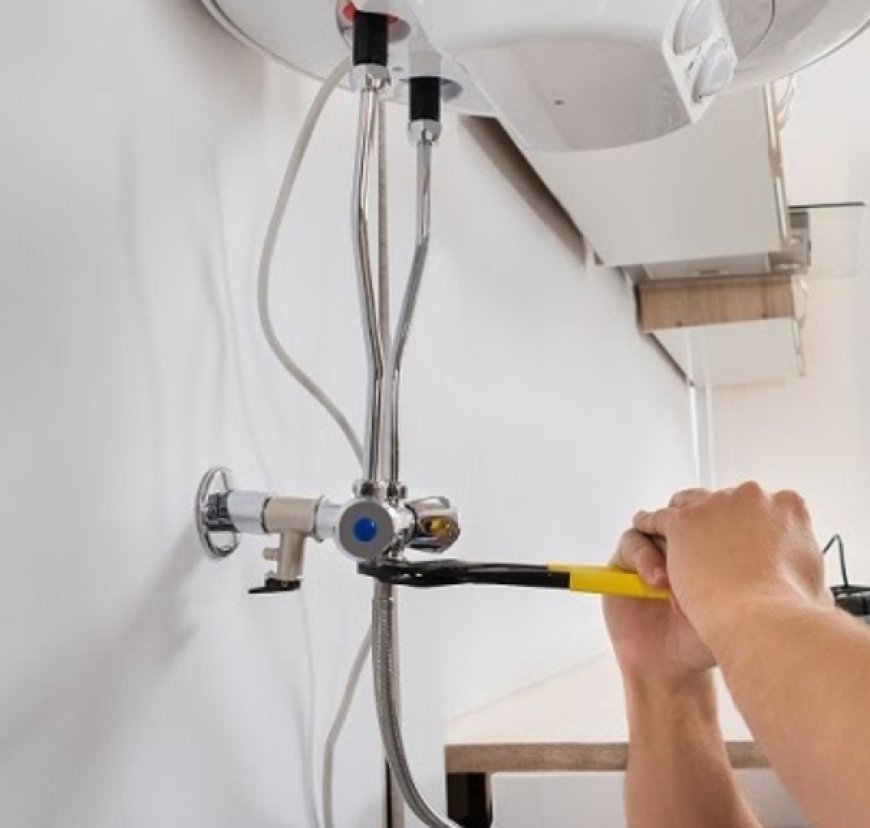Troubleshooting When You Have No Hot Water

It’s a frustrating situation to face—waking up to take a hot shower, only to discover there’s no hot water. Whether it’s for a morning routine or simple daily chores, a lack of hot water can disrupt your entire day. If you're experiencing this issue, it may be time to troubleshoot your water heating system.
Common Causes of No Hot Water
-
Electric Water Heater Issues Electric water heaters are a common source of hot water in homes. If you have no hot water, the issue may lie with the thermostat, a blown fuse, or a broken heating element. The thermostat controls the temperature, while the heating element heats the water. If one or both of these components are faulty, your water heater can fail to heat the water effectively.
-
Gas Water Heater Problems For homes using a gas water heater, the issue could be related to the pilot light. If the light goes out, the burner cannot ignite to heat the water. A faulty thermocouple, which senses whether the pilot light is on, could also be at fault. Gas supply interruptions are another possible reason for a lack of hot water.
-
Sediment Buildup Over time, mineral deposits from hard water can build up in the tank. This sediment interferes with the heating elements or gas burner, making it difficult for the water to heat up properly. Flushing the tank can often solve this problem.
-
Power Issues If you experience an outage or tripped circuit breaker, it can stop an electric water heater from working. A simple reset or troubleshooting the power source can restore hot water.
What to Do When You Have No Hot Water
- Reset the Water Heater: If you have an electric water heater, try resetting the circuit breaker. You may also need to reset the water heater’s thermostat.
- Check the Gas Supply: If you have a gas water heater, make sure the gas is turned on and that the pilot light is working. If it’s out, follow the manufacturer's instructions to relight it.
- Inspect the Thermostat and Heating Element: For electric water heaters, inspect the thermostat and heating elements for any signs of malfunction. If needed, call a professional for repairs.
- Flush the Tank: If you have a sediment buildup, flush the tank to remove the debris. Regular maintenance of your water heater can prevent future sediment accumulation.
When to Call a Professional
If you're unable to identify or fix the issue, or if you encounter more complex problems like a broken thermostat, heating element, or gas valve, it’s important to contact a professional plumber or HVAC technician. Companies like High Efficiency LLC, serving Cape Cod and surrounding areas, specialize in water heater repair and maintenance. With a team of licensed professionals, they can quickly diagnose and resolve any issues with your water heater, ensuring that you have hot water again in no time.
Preventive Maintenance for Long-Term Hot Water Solutions
Regular maintenance is key to ensuring your water heater remains in good working condition. A professional service technician can inspect the system, clean the components, and address any wear and tear before it becomes a bigger issue. Whether you have an electric or gas water heater, proactive care can extend its lifespan and reduce the likelihood of unexpected failures.
Conclusion
Having no hot water can be a major inconvenience, but the issue is often easy to diagnose and fix with the right approach. From checking the thermostat and heating elements to flushing the tank for sediment buildup, many solutions are within your reach. For complex issues or when in doubt, professional plumbers like those at High Efficiency LLC are ready to help with fast, reliable service. Don’t let a lack of hot water ruin your day—contact a trusted expert to get your system up and running again.
What's Your Reaction?





















